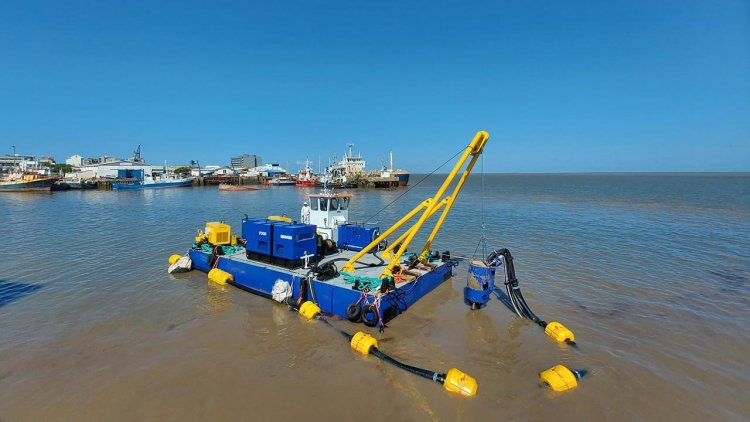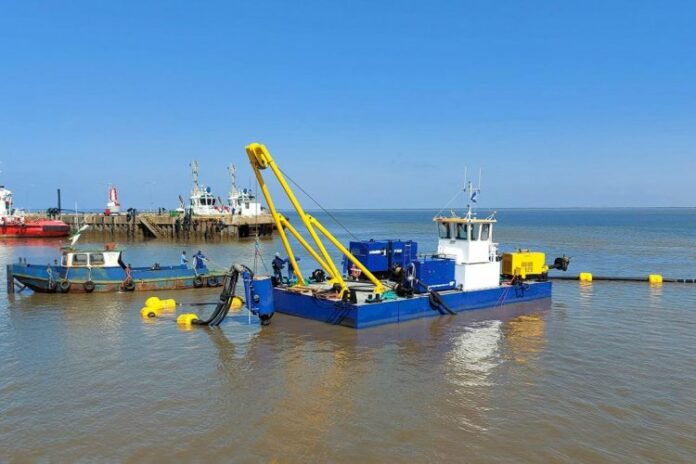On June 20th, the dredger named Estoril, was handed over to its owner in a special ceremony. Fitted out with a renowned Damen submersible DOP dredge pump, the modular dredger will be located at the Port of Beira, where it will be performing maintenance dredging duties to ensure accessibility for larger vessels.
Damen designed and built the dredger to EMODRAGA’s specifications. At 15 m long and 7 m wide, the DOP Dredger can be dismounted and easily transported by trucks, even to remote locations. Additionally, reassembly can be done swiftly due to its plug ‘n play design and the limited unit weight.
Equipped with a jet water-assisted suction head, the submersible dredge pump will be able to reach high mixture concentrations during its maintenance dredging activities, pumping some 800 m3/h. The dredger also has a very limited draught to guarantee access to the entire port.

Christopher Huvers, Regional Director Africa at Damen Shipyards, emphasises, said:
“As the second largest port of Mozambique, Beira is a very busy port. And it has quite a challenge in that two rivers, the Buzi and the Pungwe, flow through the port. They take quite a lot of sediment with them, which deposits in the port. This sedimentation requires continuous maintenance dredging. At present, there are severe draught limitations at low tide throughout the port. The new Damen dredger will ensure accessibility for the local fishing fleet and will make sure the 12 berths of the port are kept at the required depth. Estoril will also be used to dredge other rivers throughout the country.”
Once tested in the Netherlands, the modular dredger was disassembled and transported to the Port of Beira, where it was reassembled in only six days. Then Damen’s expert field service engineers trained the crew on the spot.
Mr Huvers said:
“This new dredger will certainly reinforce the local dredging operations, and improve the accessibility of the Port of Beira.”



